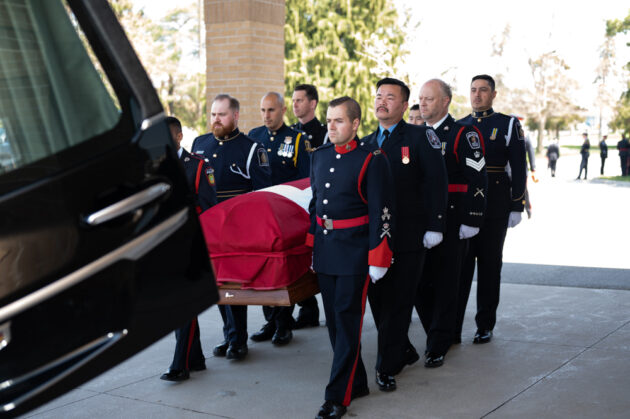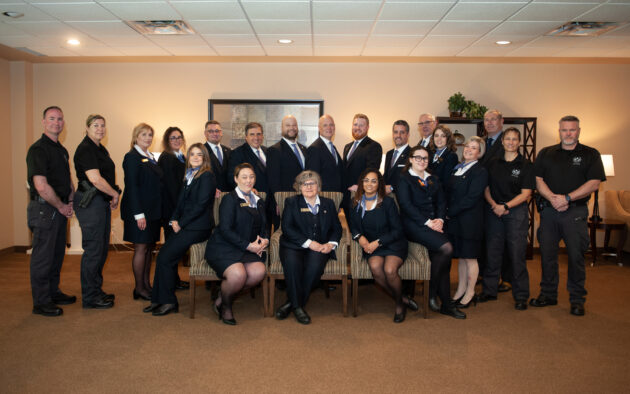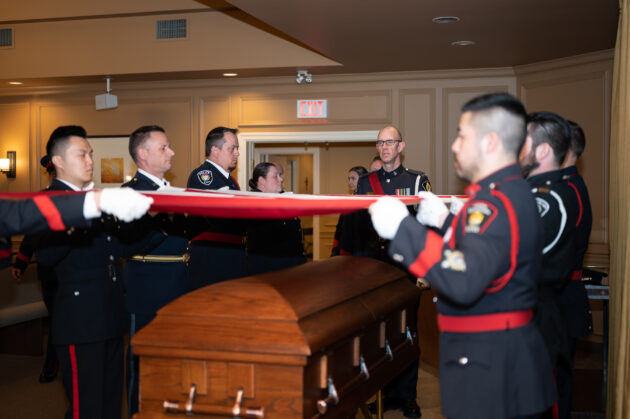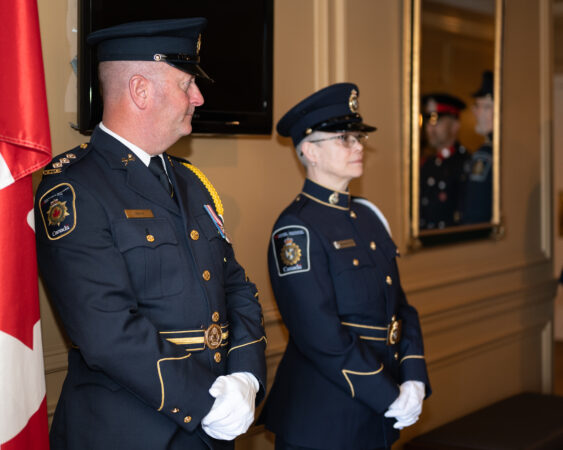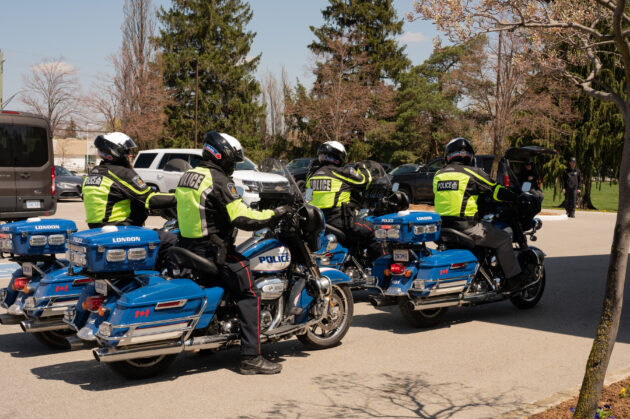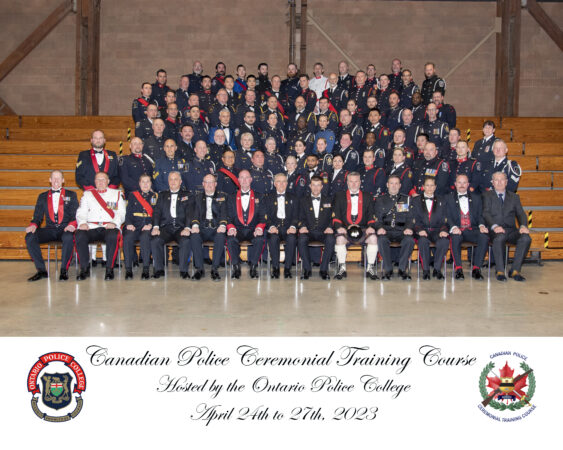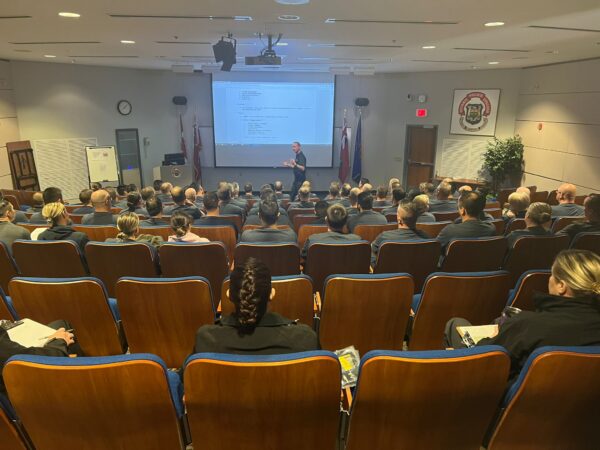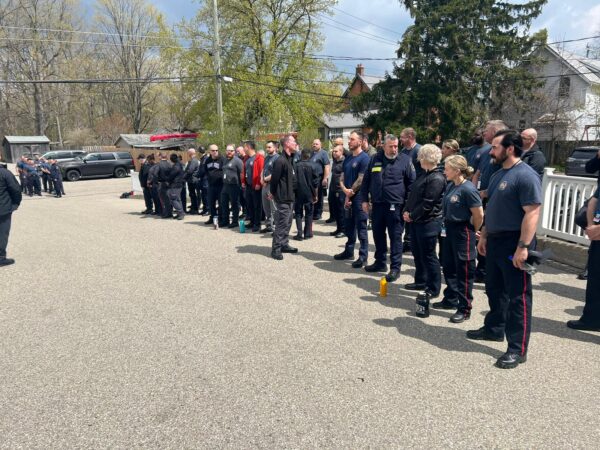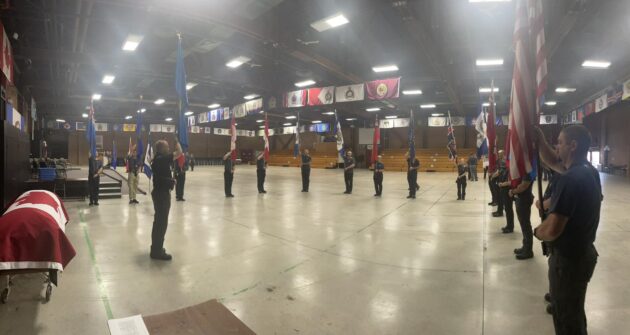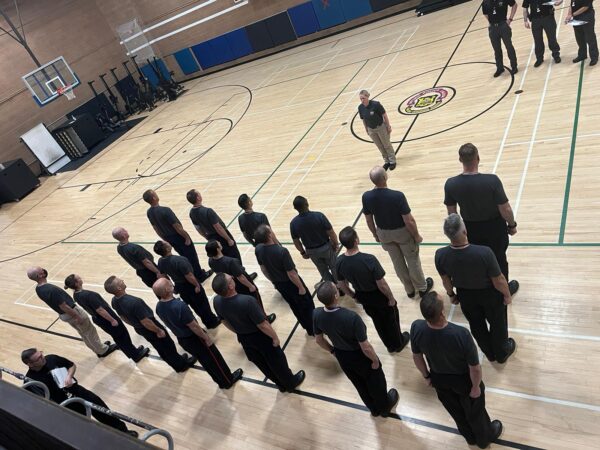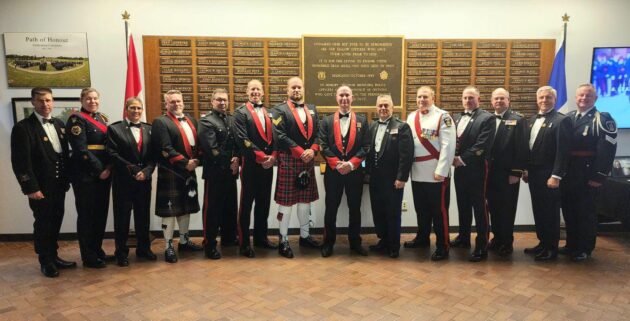
Features
Photo Gallery
Q&A
Q&A: S/Sgt. Robert Patterson
October 25, 2023 By Brittani Schroeder
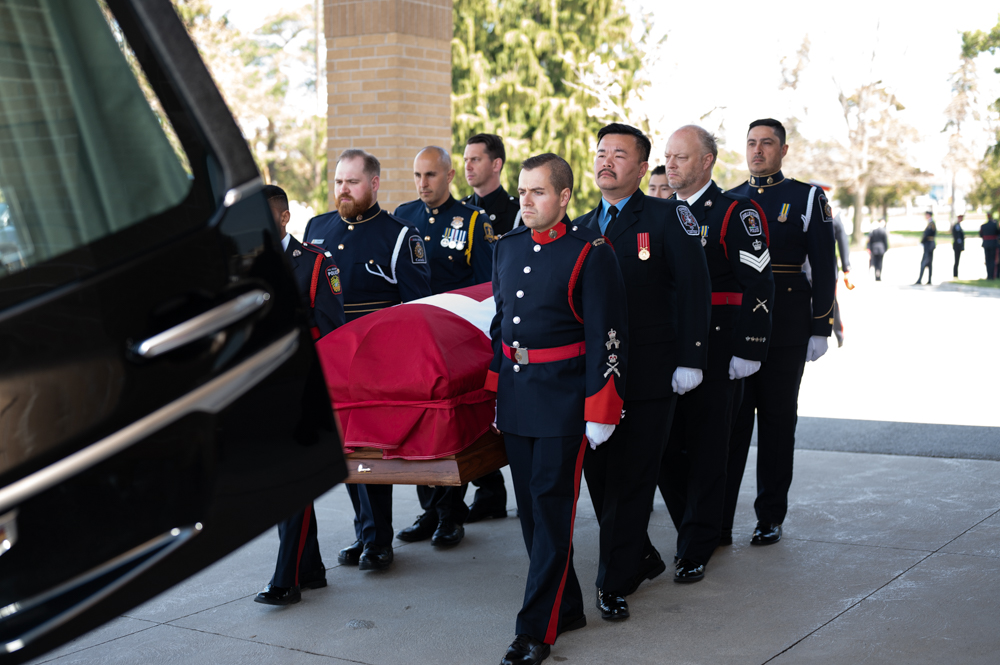 Photo: Kamini Le Capelain
Photo: Kamini Le Capelain Recently, editor Brittani Schroeder spoke with S/Sgt. Robert Patterson of the Calgary Police Service Traffic Section and Course Commander for the Canadian Police Ceremonial Training Course about the importance of running a ceremonial training course for the first responder community.
Q: How did you get involved?
I was an air cadet as a kid and later joined the Canadian Armed Forces reserves. When I became a police officer, I joined the Calgary Police Service (CPS) Honour Guard and became a drill instructor soon after completing recruit training. I’ve been practicing ceremonial skills since I was 12 years old. In 2012, I collaborated with the CPS Sergeant Major at that time to create a formal course, combining our expertise.
Q: What is the history behind the Ceremonial Training Course?
CPS’ Honour Guard was established in the early 80s and, although not initially, gained considerable support over the past 20 years. Recognizing the need to enhance our ceremonial training, we looked for additional resources outside our police service. However, we discovered that no one in Canada offered such training. We traveled to Virginia to take a course, but it had an American focus, which didn’t align with Canadian traditions.
To avoid sending Canadian officers to the U.S. for training, we decided to create our own course in Calgary. In 2012, we started with a small seminar-like format, inviting members from our service, Calgary Fire, EMS and other local police agencies. There were 25 attendees, and it was well-received. We gradually expanded the course.
In 2014, I took over as the Sergeant Major for CPS and we expanded the course to a four-day event, where you’d learn and practice new skills on days one and two, you’d start putting those into practice on day three, and on day four we added a full simulation exercise at a funeral home. In 2019, Arbor Memorial started providing us with access to a funeral home and cemetery.
In 2020, we aimed to take the course to Ontario. We’d recently been given an endorsement from the Alberta Association of Chiefs of Police and the Association of Sergeant Majors, so we started pursuing an endorsement from the Ontario Association of Chiefs of Police—which we did get. The pandemic unfortunately forced us to cancel that year’s course. Finally, in 2023, the course successfully took place at the Ontario Police College (OPC) with a record attendance of 70 participants.
The 2023 course attracted attendees from nearly every province. With representation from all first responder agencies, including police, fire, EMS, corrections, peace officers and CBSA, it was a resounding success. We even had to close registration and create a waitlist because we could only accommodate so many members.
Q: What kind of skills are you teaching your attendees?
The course covers a wide range of skills. We split it into two parts. The “Member’s” course is for individuals with little to intermediate experience in ceremonial training, while the “Commander’s” course targets those with intermediate to advanced skills who aspire to be Honour Guard commanders.
The Member’s course focuses on the basic foot drill, marching, saluting, flag carrying, participating in the colour party, and handling arms. In the Commander’s course, assuming attendees already possess these skills, we teach them how to instruct drill, plan and command ceremonial events, and follow proper protocol. They also learn how to pass on these skills to others. During this course, attendees mentor and instruct the Member’s course attendees, and on the final day, they plan and execute the simulation exercise involving different aspects of a Line of Duty funeral service.
The Commander’s course is a pass or fail program that demands a higher level of commitment, as they need to meet specific standards. Failing attendees is difficult, and rare, but it ensures that agencies can expect a certain skillset and performance from the graduates.
Q: Why is it important to have these skills?
Ceremonial skills are not limited to funerals but are essential for various events such as community parades, citizenship ceremonies, change of command ceremonies, and the Calgary Stampede, where first responders are featured annually. The ceremonial component of policing represents the positive aspects of the profession—demonstrating pride and professionalism while actively participating in the community.
Learning these skills instills self-discipline, which is valuable on a personal level. Applying the training in real-life situations, such as the line of duty funeral of two Edmonton Police officers in March, showcases the importance of these skills and how they honour fallen colleagues.
Q: Has the idea of running the course twice annually ever come up?
While there is sufficient demand to run the course twice a year—one in Alberta and one in Ontario—the logistical challenges prevent us from doing so. As the course organizers, my team and I also have our daily responsibilities as police officers, making it challenging to manage the course more frequently. We plan to alternate between Alberta and Ontario to maximize accessibility for participants.
It’s an honour to equip attendees with the skills necessary for community events, ceremonies, parades and line of duty funerals. The ability to teach attendees, who can then pass on these skills to smaller agencies and ensure the development and capacity to handle such events—it’s fantastic.
Editor’s Note: This interview has been condensed and edited for clarity. To learn more about the training course, visit cpctc.ca.
Print this page
